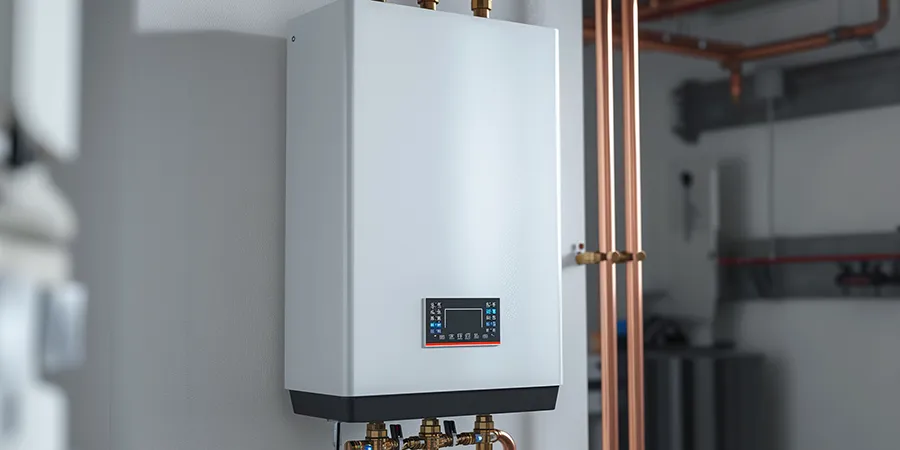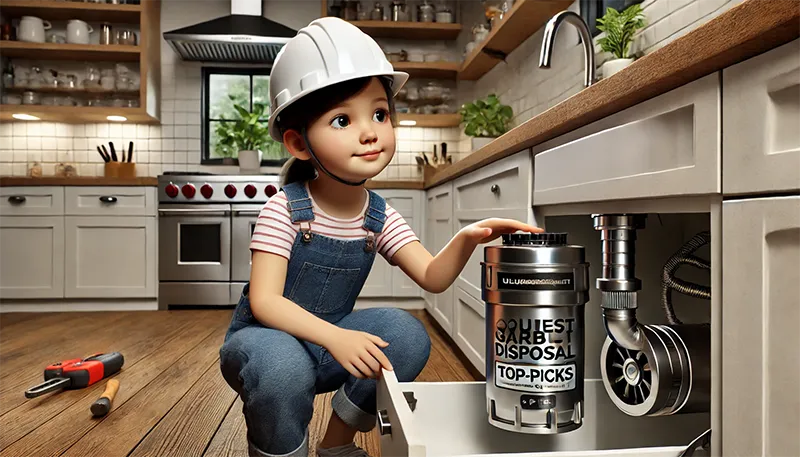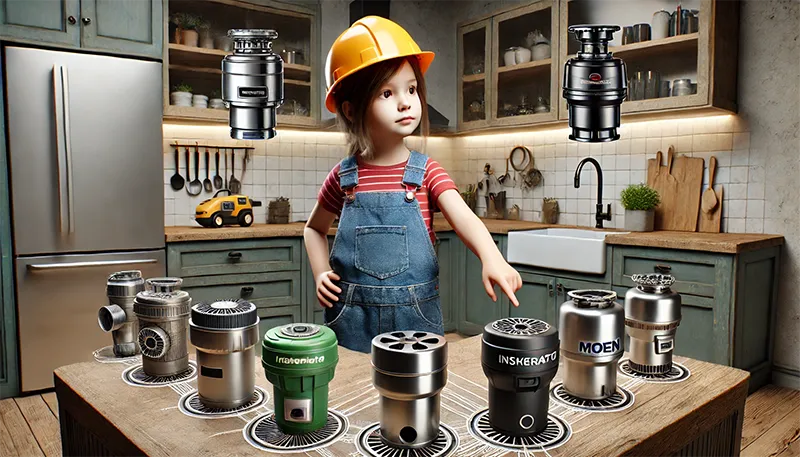Just as a well-oiled machine runs smoothly, a properly maintained tankless water heater ensures a continuous flow of hot water in your home. Like tending to a delicate garden, regular care of your tankless system will yield bountiful results in efficiency and longevity. In this comprehensive guide, we’ll dive deep into the world of tankless water heater maintenance, providing you with all the knowledge and tools you need to keep your system running at peak performance.
Did you know that tankless water heaters can reduce energy consumption by up to 34% compared to traditional storage tank models? According to the U.S. Department of Energy, this translates to significant savings for homeowners. With such impressive energy efficiency, it’s no wonder that tankless water heaters are becoming increasingly popular. However, to maintain this level of performance and enjoy the full benefits of your tankless system, regular maintenance is crucial.
Understanding Your Tankless Water Heater
Before we delve into the specifics of tankless water heater maintenance, it’s essential to understand how these systems work. Unlike traditional water heaters that store and continuously heat a large tank of water, tankless models heat water on demand as it flows through the unit. This process eliminates standby energy losses associated with storage water heaters, resulting in greater efficiency.
Tankless water heaters use either gas or electricity to heat water. When a hot water tap is turned on, cold water travels through a pipe into the unit. A gas burner or an electric element heats the water, providing a constant supply of hot water. This on-demand heating system is what makes tankless water heaters so efficient, but it also means that proper maintenance is crucial to ensure optimal performance.
The Importance of Regular Tankless Water Heater Maintenance
Regular maintenance of your tankless water heater is not just about ensuring a steady supply of hot water; it’s about protecting your investment, maximizing energy efficiency, and extending the lifespan of your unit. Neglecting maintenance can lead to a host of issues, including:
- Reduced efficiency and increased energy costs
- Inconsistent water temperatures
- Reduced water flow
- Premature failure of components
- Shortened lifespan of the unit
By implementing a regular maintenance routine, you can avoid these issues and enjoy the full benefits of your tankless water heater for years to come.
Routine Maintenance Tasks
Flushing the System
One of the most critical aspects of tankless water heater maintenance is flushing the system. This process removes mineral buildup, which is especially important in areas with medium water hardness. Here’s a step-by-step guide to flushing your tankless water heater:
- Turn off the power supply to the unit. For gas heaters, turn off the gas supply as well.
- Close the water supply valves to isolate the heater from the plumbing system.
- Connect a submersible pump to the cold water inlet using a hose.
- Place another hose from the hot water outlet into a 5-gallon bucket.
- Pour about 4 gallons of white vinegar into the bucket.
- Turn on the pump and allow the vinegar solution to circulate through the system for about an hour.
- After an hour, turn off the pump and dispose of the vinegar solution.
- Flush the system with clean water for about 10 minutes to remove any remaining vinegar and debris.
- Restore all connections, turn on the water supply, and restore power to the unit.
Performing this tankless water heater maintenance task annually can significantly improve the efficiency and longevity of your system.
Cleaning Filters
Another essential aspect of tankless water heater maintenance is cleaning the filters. Most tankless units have an inlet filter that prevents debris from entering the system. Here’s how to clean it:
- Locate the water inlet filter, usually found near the cold water inlet connection.
- Remove the filter carefully, following the manufacturer’s instructions.
- Rinse the filter under running water to remove any accumulated debris.
- For stubborn buildup, use a soft brush to gently clean the filter.
- Once clean, reinsert the filter into its housing.
Cleaning the filter every few months as part of your tankless water heater maintenance routine will help maintain optimal water flow and prevent potential damage to internal components.
Inspecting Components
Regular visual inspections are a crucial part of tankless water heater maintenance. During these inspections, look for:
- Loose connections: Check all water and gas connections (if applicable) for any signs of leakage or looseness.
- Signs of corrosion: Inspect visible parts for any rust or corrosion, which could indicate a developing problem.
- Unusual noises during operation: Listen for any strange sounds when the unit is running, as these could signal internal issues.
- Venting system (for gas units): Ensure the venting system is clear of obstructions and properly sealed.
Checking the Pressure Relief Valve
The pressure relief valve is a critical safety component of your tankless water heater. As part of your tankless water heater maintenance routine:
- Locate the pressure relief valve, usually found on the side of the unit.
- Place a bucket under the discharge pipe.
- Lift the lever on the valve to release a small amount of water.
- If water doesn’t flow or the valve doesn’t reseat properly, it may need replacement.
Signs That Indicate Maintenance Needs
While regular tankless water heater maintenance can prevent many issues, it’s important to be aware of signs that your system may need attention:
- Fluctuating water temperatures: If you notice sudden changes in water temperature, it could indicate scaling buildup or a failing heating element.
- Reduced water flow: A decrease in hot water flow could be due to mineral buildup or a clogged filter.
- Error codes on the display panel: Many tankless water heaters have diagnostic systems that display error codes when issues arise. Consult your owner’s manual to interpret these codes.
- Strange odors or discoloration in water: This could indicate corrosion within the system or a problem with your water supply.
- Unusual noises: Popping, crackling, or other strange sounds during operation may signal scaling or other internal issues.
If you notice any of these signs, it’s time to perform some tankless water heater maintenance or call a professional for assistance.
Energy Efficiency Tips
Proper tankless water heater maintenance goes hand in hand with energy efficiency. Here are some tips to maximize the efficiency of your system:
- Set the temperature correctly: For most households, setting the temperature to 120°F (49°C) provides a good balance between comfort and efficiency.
- Install low-flow fixtures: Using low-flow showerheads and faucet aerators can reduce hot water demand, allowing your tankless system to operate more efficiently.
- Insulate hot water pipes: Proper insulation minimizes heat loss as hot water travels through your pipes, reducing the workload on your tankless heater.
- Use cold water for laundry: Whenever possible, use cold water for washing clothes to reduce the demand on your tankless water heater.
- Schedule regular maintenance: Consistent tankless water heater maintenance, including annual flushing and filter cleaning, keeps your system running at peak efficiency.
Professional Tankless Water Heater Maintenance
While many aspects of tankless water heater maintenance can be performed by homeowners, some tasks are best left to professionals. Consider scheduling a professional maintenance check annually, especially if you’re not comfortable performing the maintenance yourself.A professional technician can:
- Perform a thorough inspection of all components
- Check and adjust gas pressure (for gas units)
- Inspect and clean the burner assembly
- Test safety controls and electrical components
- Perform a more comprehensive flush of the system
Professional tankless water heater maintenance can catch potential issues early and ensure your system is operating at its best.
FAQs
Q: How often should I flush my tankless water heater?
A: In areas with medium water hardness, annual flushing is recommended as part of your tankless water heater maintenance routine. However, in areas with hard water, more frequent flushing may be necessary.
Q: Can I perform maintenance myself?
A: Basic tasks like filter cleaning and visual inspections can be DIY, but complex issues or tasks involving gas or electrical components should be handled by professionals.
Q: Will regular maintenance extend my unit’s lifespan?
A: Yes, proper tankless water heater maintenance can significantly increase the longevity of your unit, potentially extending its lifespan by several years.
Q: How long does a tankless water heater typically last?
A: With proper maintenance, a tankless water heater can last 20 years or more, compared to 10-15 years for traditional tank-style heaters.
Q: Are there any special considerations for gas tankless water heaters?
A: Gas units require additional attention to venting systems and gas connections. It’s often best to have a professional handle maintenance for gas tankless water heaters.
Q: How can I tell if my water is hard?
A: Signs of hard water include scale buildup on fixtures, spots on dishes after washing, and reduced soap lather. You can also use a home water testing kit or contact your local water utility for information.
Conclusion
Maintaining your tankless water heater is key to ensuring a reliable supply of hot water, maximizing energy efficiency, and extending the lifespan of your unit. By incorporating these tankless water heater maintenance tasks into your regular home care routine, you’ll keep your on-demand oasis flowing smoothly for years to come.
Remember, while some maintenance tasks can be performed by homeowners, don’t hesitate to call a professional for more complex issues or if you’re unsure about any aspect of tankless water heater maintenance. The investment in professional service can pay off in the long run through improved efficiency and a longer-lasting system.
We encourage you to share your tankless water heater maintenance success stories on social media. By spreading awareness about the importance of proper maintenance, you can help others enjoy the full benefits of their tankless systems.



